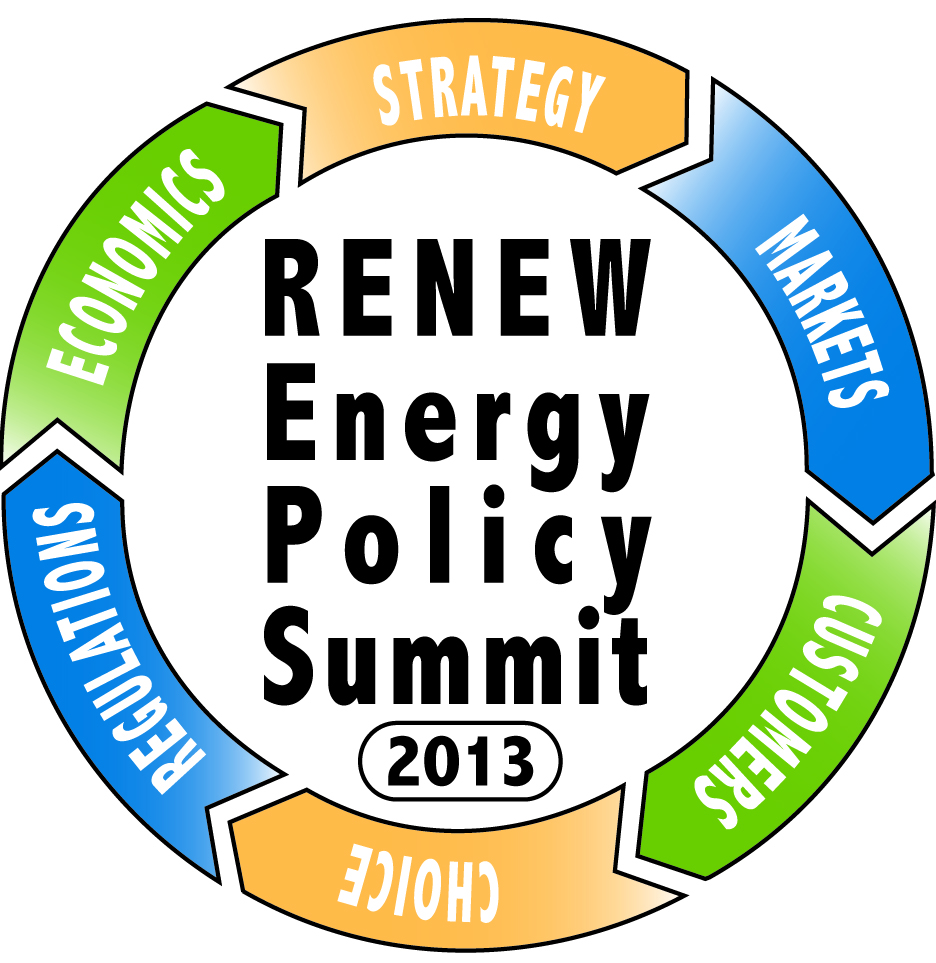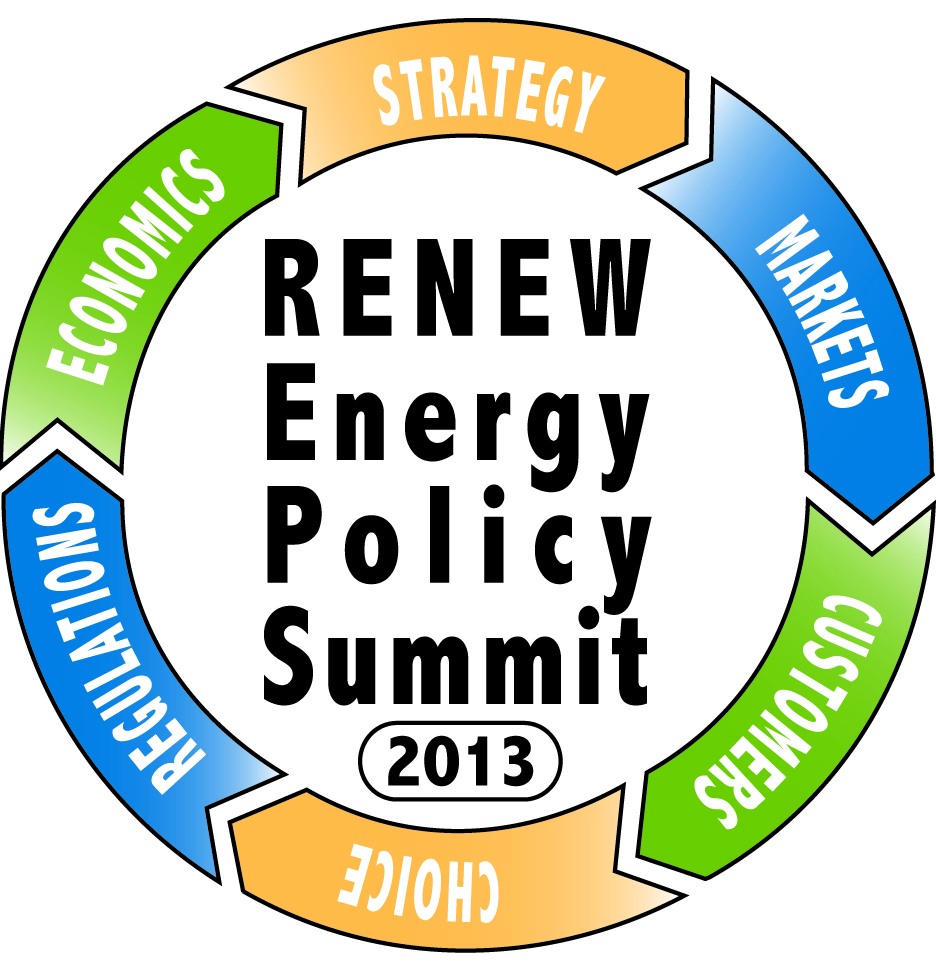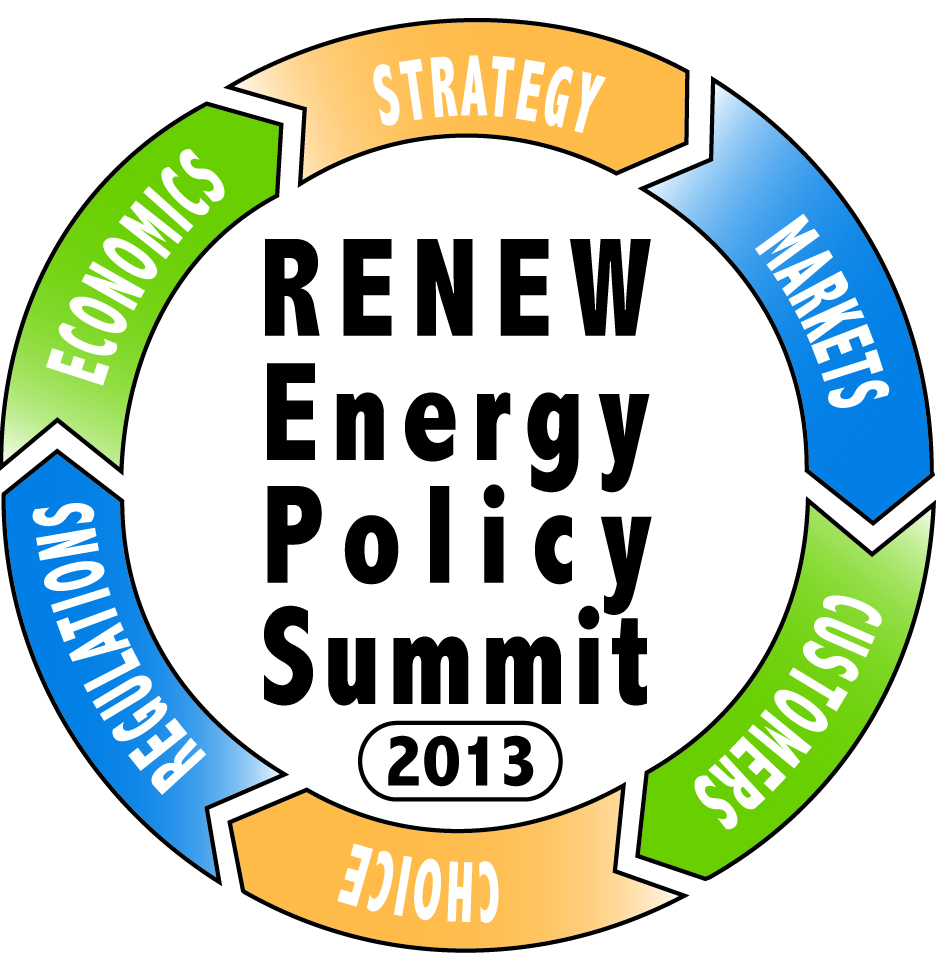
by jboullion | Nov 28, 2012 | Uncategorized
RENEW Wisconsin is excited to present the 2013 renewable energy policy summit, “Powering Positive Action!”. Every business, organization, and individual interested in promoting clean renewable energy in Wisconsin should attend.
At this year’s Summit, we will lay the policy foundation for Powering Positive Action in 2013 through investments in new renewable infrastructure serving Wisconsin businesses and citizens.

We are thrilled to host former Colorado Governor, Bill Ritter, as the keynote speaker for the summit. During his time as governor, his administration made Colorado one of the leading states in the US in renewable energy.
Registration and sponsorship opportunities are now open. Don’t wait until it’s too late!
Bill Ritter, Summit Keynote Speaker
var so = new SWFObject(‘https://www.regonline.com/documents/web/widgets/widget_001.swf’, ‘widget’, ‘300’, ‘115’, ‘8’, ”);so.addParam(‘wmode’, ‘transparent’);so.addVariable(‘url’, ‘http://www.regonline.com/renewableenergysummit2013’);so.addVariable(‘date’, ‘1/11/2013’);so.addVariable(‘title’, ‘Powering Positive Action!’);so.addVariable(‘location’, ‘Madison, WI’);so.addVariable(‘cMain’, ‘#336699’);so.addVariable(‘cSecond’, ‘#ff9900’);so.write(‘flashContent93515’);
|

by jboullion | Nov 28, 2012 | Uncategorized
RENEW Wisconsin is excited to present the 2013 renewable energy policy summit,
“Powering Positive Action!”. Every business, organization, and individual interested in promoting clean renewable energy in Wisconsin should attend.
At this year’s Summit we will lay the policy foundation for Powering Positive Action in 2013 through investments in new renewable infrastructure serving Wisconsin businesses and citizens.
 |
| Bill Ritter, Summit Keynote Speaker |
We are thrilled to host former Colorado Governor, Bill Ritter, as the keynote speaker for the summit. During his time as governor, his administration made Colorado one of the leading states in the US in renewable energy.
var so = new SWFObject(‘https://www.regonline.com/documents/web/widgets/widget_001.swf’, ‘widget’, ‘300’, ‘115’, ‘8’, ”);so.addParam(‘wmode’, ‘transparent’);so.addVariable(‘url’, ‘http://www.regonline.com/renewableenergysummit2013’);so.addVariable(‘date’, ‘1/11/2013’);so.addVariable(‘title’, ‘Powering Positive Action!’);so.addVariable(‘location’, ‘Madison, WI’);so.addVariable(‘cMain’, ‘#336699’);so.addVariable(‘cSecond’, ‘#ff9900’);so.write(‘flashContent93515’);
|

by Ed Blume | Nov 28, 2012 | Uncategorized
RENEW Wisconsin is excited to present the 2013 renewable energy policy summit,
“Powering Positive Action!”. Every business, organization, and individual interested in promoting clean renewable
energy in Wisconsin should attend.
At this year’s Summit we will lay the policy foundation for Powering Positive Action in 2013 through investments in new renewable infrastructure serving Wisconsin businesses and citizens.
 |
| Bill Ritter, Summit Keynote Speaker |
We are thrilled to host former Colorado Governor, Bill Ritter, as the keynote speaker for the summit. During his time as governor, his administration made Colorado one of the leading states in the US in renewable energy.
var so = new SWFObject(‘https://www.regonline.com/documents/web/widgets/widget_001.swf’, ‘widget’, ‘300’, ‘115’, ‘8’, ”);so.addParam(‘wmode’, ‘transparent’);so.addVariable(‘url’, ‘http://www.regonline.com/renewableenergysummit2013’);so.addVariable(‘date’, ‘1/11/2013’);so.addVariable(‘title’, ‘Powering Positive Action!’);so.addVariable(‘location’, ‘Madison, WI’);so.addVariable(‘cMain’, ‘#336699’);so.addVariable(‘cSecond’, ‘#ff9900’);so.write(‘flashContent93515’);
|
by Ed Blume | Nov 20, 2012 | Uncategorized
An excerpt from WPPI Energy‘s fall newsletter, discussing the new Richland Center digester. The full pdf of the newsletter can be found here.
This fall, a local business partnership between Foremost Farms USA and Schreiber
Foods—two major dairy processors in Richland Center—developed the Richland
Center Renewable Energy, LLC (RCRE) digester. RCRE will generate up to 1.7
megawatts of renewable energy. Construction on RCRE began in late 2011 and the
project is expected to be completed and online by the end of 2012. WPPI Energy
will purchase the power, using it to serve the 51 locally owned, not-for-profit member
utilities of WPPI Energy.
The digester will treat industrial wastewater from Foremost Farms and Schreiber
Foods with an anaerobic and aerobic process to produce energy. Anaerobic digestion
produces biogas—a mixture of methane, carbon dioxide, and other trace gases—which
is generated from the treatment process and converted to electricity.
RCRE will address the current industrial and future energy needs of the Richland Center community by providing a long-term
economical waste management solution. RCRE will efficiently handle the wastewater streams from Foremost Farms and Schreiber
Foods, significantly reducing land-applications of liquid waste streams on agricultural fields, thus reducing potential runoff and
discharge of nutrients into local waterways. Additionally, the digester will produce a clean source of local renewable energy.
WPPI Energy’s membership is making smart energy decisions to meet the energy demands of the future for local
communities and customers.
by Ed Blume | Nov 15, 2012 | Uncategorized
Journel Sentinel’s Thomas Content highlights a hydroelectric rebuild project in Kaukauna. This is exactly the kind of renewable energy project the utilities should do more of. See the original article here.
 |
| Boldt Construction workers clean the bedrock of a canal where a new powerhouse will be built on the Fox River in Kaukauna. In order to construct the new powerhouse, the canal was drained and rebuilt and an additional 20 feet of bedrock was removed to make space for the new turbines. |
An unusual construction project in Kaukauna will keep electricity flowing thanks to the currents of the Fox River.
The project is the rebuilding of the Badger Hydro generating station, which has been producing electricity for more than 100 years.
The $38 million project is retiring an old, small hydro plant, the circa-1908 Old Badger, and rebuilding the project known as New Badger – which dates to 1927.
When the project is completed late next year, Kaukauna Utilities will be generating more power from one new generator than it was from the two older ones combined, said Jeff Feldt, executive director of Kaukauna Utilities.
The municipal utility supplies 20% of its customers’ electricity needs from hydroelectric power, a form of renewable energy that has been part of Wisconsin for generations but doesn’t get as much attention as newer technologies like wind and solar.
Investing in hydroelectric power makes sense for customers long term, though it will mean an increase in rates for the small utility’s customers next year, Feldt said.
“We know that this plant should last 100 years because we had proof sitting right next door,” he said. “When you look at what this does for our customers going forward, it is a significant advantage to have hydro.”
Because the power is derived from the river’s flow, it means the plant has no fuel costs. That will help insulate customers from future fuel price increases.
Rebuilding the project has been an unusual piece of work. The long, 12-foot-deep canal off the Fox River where the project sits had to be drained – one foot per day – beginning in May.
Before construction could begin, the utility had to hire a fisheries consultant to conduct a “fish rescue.”
More than 5,000 fish – 23 species in all – were rescued and moved to the Fox River, Feldt said.
After the draining came the demolition of one of the two old hydro plants and then much-needed work to shore up the stone walls of the man-made canal that was originally built 130 years ago, Feldt said.
“Once we drained the power canal, you saw the workmanship that was done 130 years ago was just amazing,” he said.
Contractors with Boldt Construction saved many of those stones, which will be reused to give the canal walls above the water line a historic and familiar look.
“From the public’s perspective it will look very much like it did originally, but from a structural perspective it will be much more sound and watertight, so to speak,” said Paul Coenen, vice president at Boldt Construction who is overseeing the project.
Boldt is active in building energy projects, from the Charter St. natural-gas-fired power plant in downtown Madison to the biomass generation plant under construction for We Energies at the Domtar paper mill in Rothschild.
Boldt has had experience with repairing hydro plants, but, “This is the first time that I know that we’ve done an entire rebuild,” said Coenen.
What makes it unique, other than working in the bottom of a canal?
“It’s a construction project that spans six to seven city blocks,” said Coenen. “It’s just a long distance from one end to the other. It creates somewhat of a communication and organization and logistical challenge, by how spread out the job is.”
When it’s completed, the new project will generate 7 megawatts of power – an increase of 25% from the two old plants – enough to serve about 4,000 homes.
That’s small in the scheme of the major power plants built in Wisconsin in recent years.
“But it’s big for Kaukauna Utilities,” said Feldt, whose power company serves 14,000 customers.
A typical Kaukauna Utilities customer would see prices rise by about 6.3%, or $5.44 a month.
“It is a rate increase, but it is an investment in the future and will help stabilize our rates going forward,” said Feldt.
The state Public Service Commission is reviewing the Kaukauna Utilities’ rate increase request.
Find the original article here.
by jboullion | Nov 14, 2012 | Uncategorized
RENEW Wisconsin‘s Michael Vickerman weight in on the recent changes in Wisconsin politics, and what they mean for the future of renewable energies. From this article in Midwest Energy News by Dan Haugen.
Will changing political winds in Wisconsin mean another new direction for wind energy policy in the state?
Wisconsin Republicans reclaimed control of the state’s senate last week, five months after recall elections tipped the balance to Democrats. Republicans will now hold power by a wider margin in 2013 than they held in 2011.
 |
| A wind farm near Fond du Lac, Wisconsin. Renewable energy advocates are expecting another challenge to the state’s wind siting rules. (Photo by Digidave via Creative Commons) |
Wind energy advocates are worried that might mean another attempt to repeal the state’s wind farm siting rules, which limit restrictions that local governments can place on proposed wind developments.
And one Republican state senator has already announced plans to seek a repeal of the state’s renewable electricity standard, though a renewable advocacy group doubts the bill will gain enough support to pass.
Hopes for bipartisanship
Overall, RENEW Wisconsin program and policy director Michael Vickerman expects less hostility and more acceptance of the fact that renewable energy plays a growing role in the state’s economy.
“We are hearing that there are Republican senators that want to introduce positive legislation on renewable energy next year, and they want to do so in a bipartisan fashion,” Vickerman said.
RENEW Wisconsin is a member of RE-AMP, which also publishes Midwest Energy News.
While Republicans haven’t announced their energy agenda, RENEW Wisconsin is concerned about a proposal by Republican state Sen. Frank Lasee that would un-do the state’s wind farm siting policy.
“He’s spearheading a one-person jihad against wind energy,” Vickerman said.
Wisconsin adopted statewide wind siting rules in 2011 that put boundaries on the local zoning and permitting regulations, which had delayed or derailed wind projects in some counties.
In March, Lasee introduced a bill that would have rolled back those rules, putting wind developers back at the mercy of a messy patchwork of local rules, some of which were, in Vickerman’s words, “a never-ending obstacle course” meant to discourage any projects.
Lasee’s effort last spring came up one vote short when Republicans had a 17-16 margin in the state senate. Next year, Lasse’s party is expected to hold an 18-15 majority.
“We survived, really, by the skin of our teeth,” Vickerman said. “All other things being equal, we have to find another Republican senator who will stand [for the wind siting rules.]”
RPS challenge?
The American Legislative Exchange Council, a conservative policy group that promotes identical, model legislation across the country, says it plans to make repealing state renewable mandates a high priority in 2013.
State Sen. Glenn Grothman, a Republican from Sheboygan, has already announced plans for a bill that would freeze Wisconsin’s renewable standard at its 2012 levels.
“The 10 percent renewable portfolio standard imposed on Wisconsin utilities in 2006 was a mistake,” Grothman said in a press release. (The senator’s office didn’t return a phone call last week.)
Vickerman said he is “not particularly worried” about Grothman’s bill. That’s because renewable energy has too many allies — from landfill operators to equipment manufacturers — who understand its importance to growing Wisconsin’s economy.
“He is looking at legislation that would not only scale back commitments to wind energy, but also solar, biogas, landfill gas, hydro — all the resources are covered,” Vickerman said.
The legislation would also have very little practical effect, Vickerman said, because most of the state’s utilities have met their requirements for 2015 already.
Gary Radloff, director of Midwest energy policy analysis for the Wisconsin Bioenergy Initiative at the University of Wisconsin-Madison, said it’s tough to generalize about legislators’ positions on energy.
“My experience has been that there’s a pretty broad continuum of views on energy, and that there’s people within the Republican caucus who see the benefits of renewables, especially bioenergy,” Radloff said.
Renewable energy has broad support from the public and businesses in Wisconsin, Radloff said. He thinks there’s more recognition today that a broad, all-out attack on renewables would not be popular.
His advice for lawmakers: “I would urge elected officials from both parties to go slow on dramatic energy policy change around renewables,” he said. “I think it’s really important that they go slow, keep an open mind, and recognize that the world is changing.”
See the original article and comments here.







